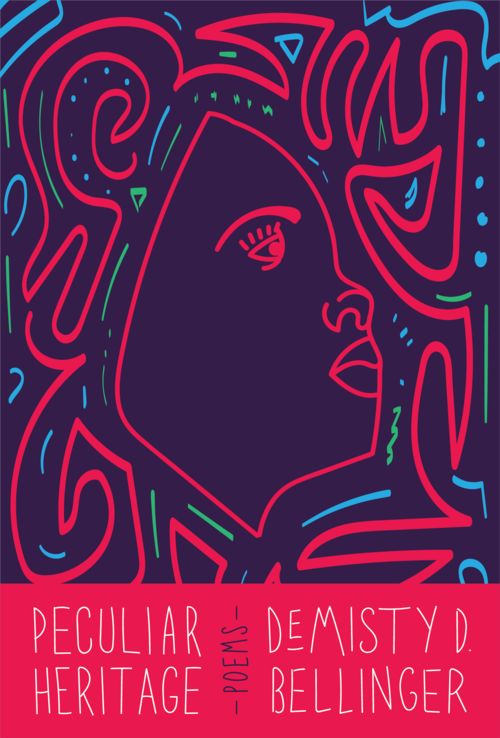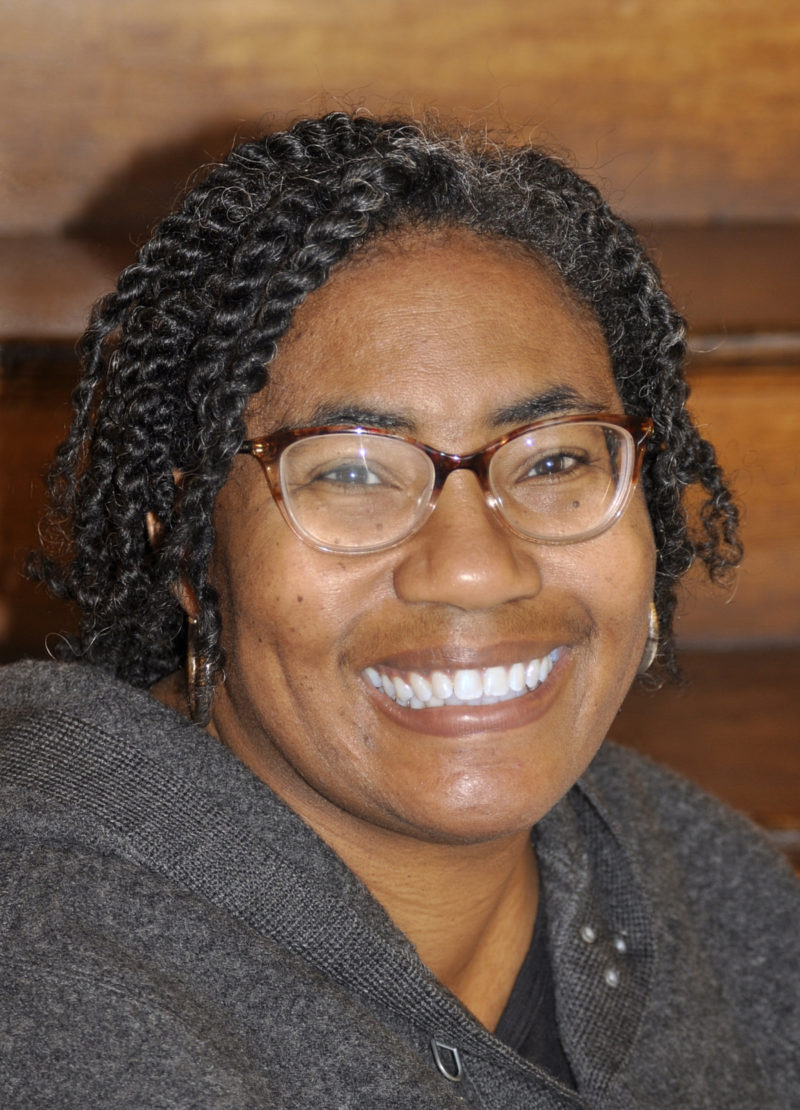Getting to Know DeMisty D. Bellinger, Author of Peculiar Heritage
When did you first encounter poetry? How did you discover that you wanted to write poems?
I tell my students this all the time because I think we forget: I first fell in love with poetry as a child. Poetry was everywhere, as it is for all kids: in nursery rhymes and playground jump rope songs. When I learned that people wrote books—poetry and otherwise—I knew that I wanted to write. I think I was about five or six when I first said I wanted to be a writer.
Do you have a writing routine? A favorite time or place to write?
During the academic year (I’m a professor at Fitchburg State University), I write when I can. Sometimes I write very late at night, sometimes on weekends, and sometimes when I give students in-class writing prompts, I write along with them.
During summers and time off, I find that it’s best to move around before writing, and if I can, I’ll go for a walk. Then, I’ll have coffee and will write. I never try to force it; if I don’t feel like writing, I read, or I play music, or I bake cookies. Unless, of course, I’m at a residency. Then, I will try to reserve at least four hours a day for writing.
Where do your poems most often “come from”—an image, a sound, a phrase, an idea?
My poetry mostly comes from ideas. I like to think about writing as a way to answer questions that we have, a way to figure out problems, or a way to explore ideas.
Which writers (living or dead) have influenced you the most?
So many writers have! Langston Hughes, Alice Walker, Toni Morrison, Lucille Clifton, Elizabeth Bishop, Edith Wharton, Margaret Atwood, Shakespeare, Natalie Diaz, and Patricia Smith immediately come to mind, but there are so many more. Is it influence, or is just that I love reading them? Can it be both?
What excites you most about your new collection?
I tried to answer the questions ‘how did we get here’ and ‘what now’ in Peculiar Heritage. In 2016, when I wrote the heft of the book, our country was going through trying times in many arenas. Women took the streets in pink “pussy hats,” the Black Lives Matter movement galvanized across the globe, our government was changing hands from a hopeful person of color to a person who broadly painted immigrants from Mexico with one brush, and my world felt unstable. I had a student come to me in tears, wondering what would happen to her and her family, because of the election. It was an uncertain time.
Like many of my friends and fellow writers, I wondered how we got to that point—then I thought that it was our country’s heritage. We’re going to have diverse ideas in political office. Black and brown bodies were often subjugated to violence. Then, I started writing about our history of the peculiar institution of slavery.
I didn’t want the book to end on such a dismal note, nor did I want it all to be about our brutal past. I wrote about other ways we got to that moment, but I also wrote about beauty, hope, and joy. I end the book with gratitude for the art of thinking, and the freedom to think.

Tituba
I’ll tell you what you want me to if I can be free
It is cold here, and I don’t know the old England—
This is all new to me.
I’ll tell you what you want me to if I can be free
I would traverse this coast on foot, float down
The Atlantic to warmer waters.
I’ll tell you anything. Yes, say ‘witch.’ Yes, say ‘spell’
I don’t care for tea or the way you speak, the
Way you don’t sing.
I close my eyes, I’ll cast a spell for me and say aloud: Yes
I see waters the color of the stones found on the shores
And palm fronds waving. . .
I don’t hurt the children, I say. I say, “I do not hurt them.”
I say the devil came, I say anything, I say it because I think
They’ll uncage me.
I say anything. I tell them stories of animals with the minds of men
Stories of dances and cats bidding the devil’s doing if
They’ll have me no more.
I tell them because I want to be free, if they want me
No more with the family, no more in Salem, no more coldness
I’ll tell them a story.

DeMisty D. Bellinger is the author of the poetry collections Rubbing Elbows (2017) and Peculiar Heritage (2021), and the forthcoming novel New to Liberty (2022). She is poetry editor at Porcupine Literary and Malarkey Books, as well as an alumna reader for Prairie Schooner. DeMisty teaches creative writing at Fitchburg State University. You can learn more about her at https://demistybellinger.com/
